Through USHA Silai Schools, Women Entrepreneurs Are Generating Jobs And Providing Livelihoods
Through USHA Silai schools many women have expanded their small home-based set-ups to improve not just their own prospects but also generate jobs and provide livelihoods for other women. Here's how the Silai Heroes trained by the USHA Silai School Programme are changing their own world, and that of others.
-
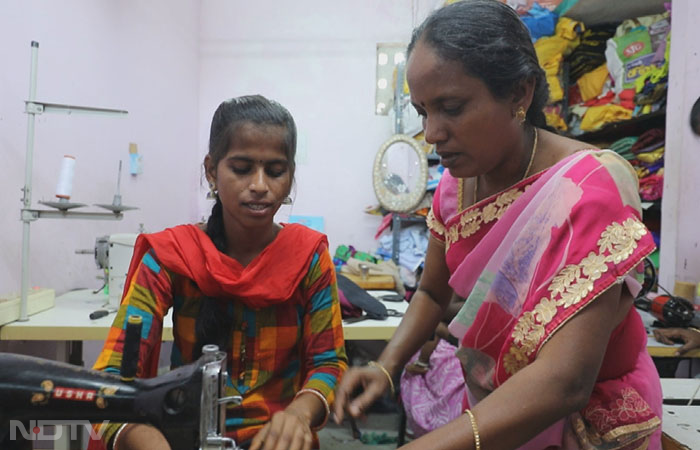 From being a daily wager in Tiruppur, Tamil Nadu, two decades ago, Metilda Mary became a self-employed tailoring and training entrepreneur. After a week-long professional tailoring programme by the USHA Silai programme in 2010, she got a sewing machine from USHA. She set up a centre in the front yard of her house and now trains women for Rs. 500 a month. Ms Mary earns around 40,000-50,000 rupees every month through tailoring and training.
From being a daily wager in Tiruppur, Tamil Nadu, two decades ago, Metilda Mary became a self-employed tailoring and training entrepreneur. After a week-long professional tailoring programme by the USHA Silai programme in 2010, she got a sewing machine from USHA. She set up a centre in the front yard of her house and now trains women for Rs. 500 a month. Ms Mary earns around 40,000-50,000 rupees every month through tailoring and training. -
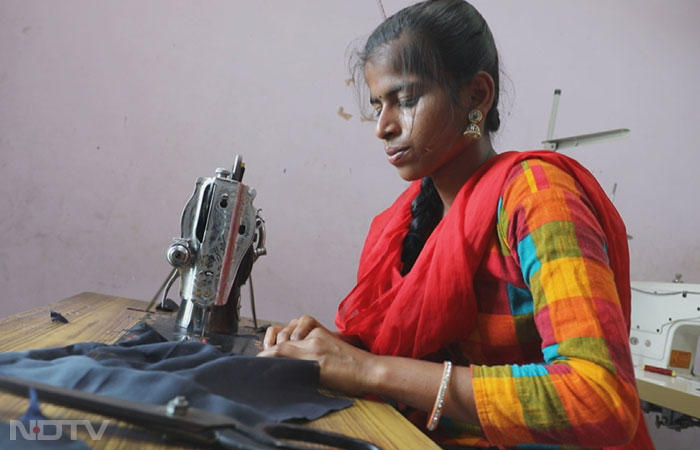 Alamelu joined Matilda's classes six years ago. She now she earns around five thousand rupees a month. The daughter of a mason has turned financially independent. She has even saved two lakh rupees for her wedding. She now wants to set up her own tailoring centre where she stitches and sells dresses as well.
Alamelu joined Matilda's classes six years ago. She now she earns around five thousand rupees a month. The daughter of a mason has turned financially independent. She has even saved two lakh rupees for her wedding. She now wants to set up her own tailoring centre where she stitches and sells dresses as well. -
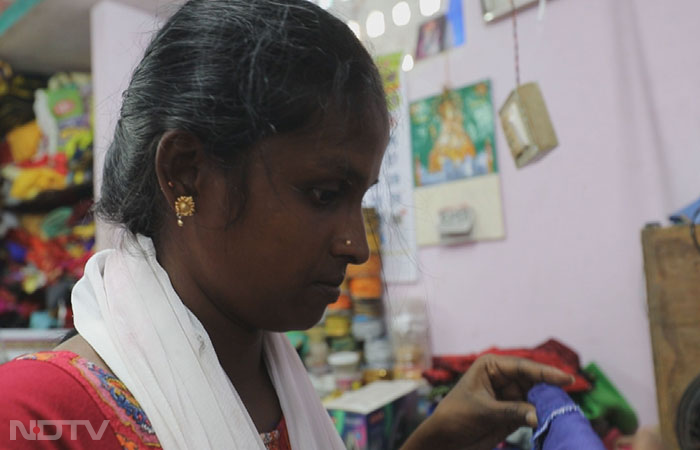 Josephine, a mother of three children also works at Matilda's Silai school. Her husband is a farm labourer and she supplements her family with her monthly income of Rs. 7000. As a girl she faced discrimination at home but today she is financially independent. Now empowered economically, she wants to give her two daughters and son the best opportunities.
Josephine, a mother of three children also works at Matilda's Silai school. Her husband is a farm labourer and she supplements her family with her monthly income of Rs. 7000. As a girl she faced discrimination at home but today she is financially independent. Now empowered economically, she wants to give her two daughters and son the best opportunities. -
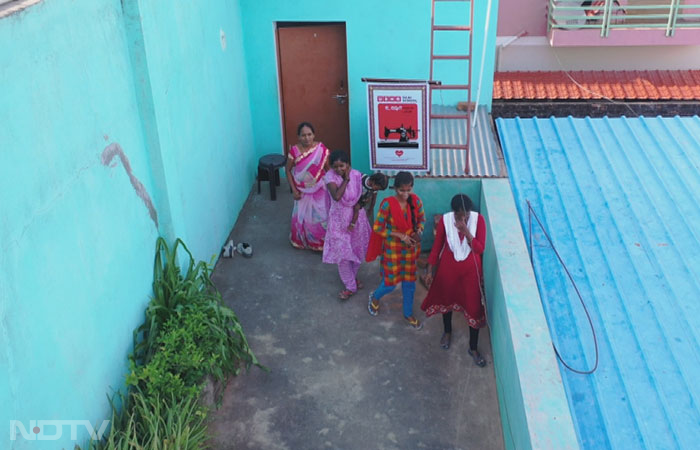 Metilda Mary's work has positively impacted at least ten women outside her circle of mentees. Her passion is so strong that she wants to reach greater heights. Matilda is among the top performers within the USHA Silai School community. And inspired by the transformation, the team says they are motivated to pursue their vision for rural development, establishing at least one such school in every village across India.
Metilda Mary's work has positively impacted at least ten women outside her circle of mentees. Her passion is so strong that she wants to reach greater heights. Matilda is among the top performers within the USHA Silai School community. And inspired by the transformation, the team says they are motivated to pursue their vision for rural development, establishing at least one such school in every village across India. -
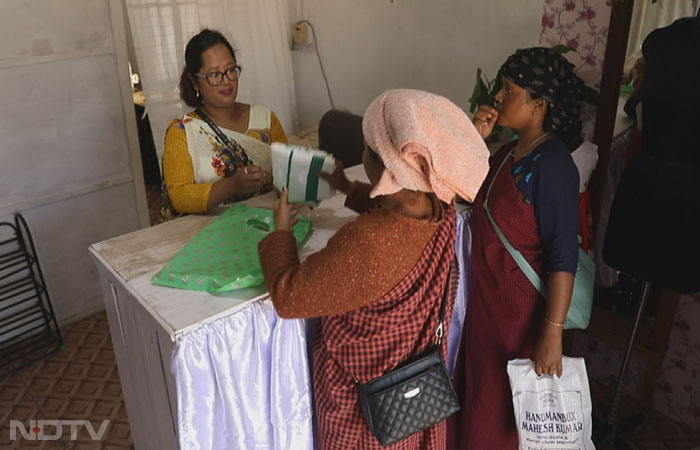 29-year-old Ledakijuh Nongtdu lives with her three sisters and parents - father is a carpenter, and mother a homemaker - in Tluh, Meghalaya. After graduation Leda tried hard to get a government job for herself but could not. Leda didn't lose confidence, rather she turned to her childhood love for sewing and stitching, especially embroidery.
29-year-old Ledakijuh Nongtdu lives with her three sisters and parents - father is a carpenter, and mother a homemaker - in Tluh, Meghalaya. After graduation Leda tried hard to get a government job for herself but could not. Leda didn't lose confidence, rather she turned to her childhood love for sewing and stitching, especially embroidery. -
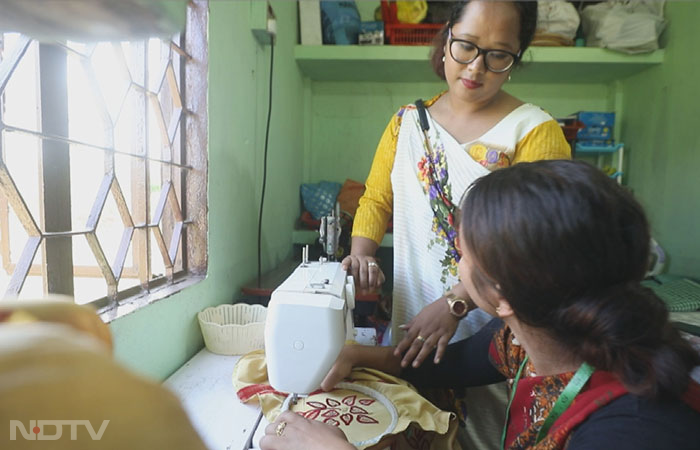 Leda joined a sewing class in Shillong but could not start her unit as she had no sewing machine. That is when she heard about the initiative of the Swavalamban Silai School, and decided to do the training. Post training, Leda repurposed her mother's old tea stall into a brand new Silai school of her own, with the use of the machines given by USHA International. Since then there has been no looking back for Leda.
Leda joined a sewing class in Shillong but could not start her unit as she had no sewing machine. That is when she heard about the initiative of the Swavalamban Silai School, and decided to do the training. Post training, Leda repurposed her mother's old tea stall into a brand new Silai school of her own, with the use of the machines given by USHA International. Since then there has been no looking back for Leda. -
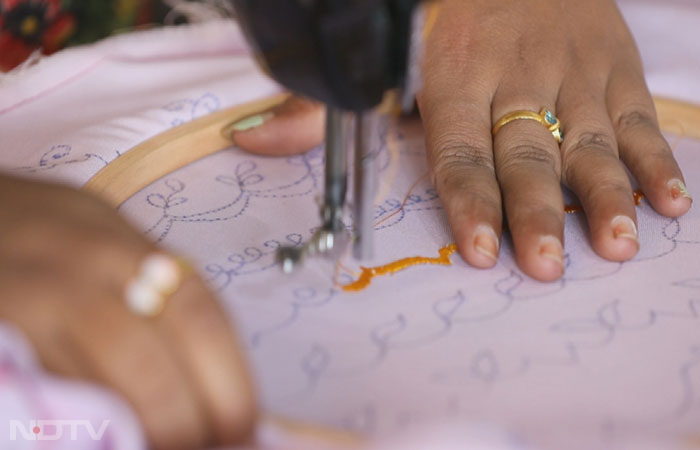 Soon the Silai school started to become popular. With the income from the school and support from family, Leda purchased another machine. This Swavalamban Silai School that Leda started is one of its kind in the area and was aided by the Small Industries Development Bank of India (SIDBI).
Soon the Silai school started to become popular. With the income from the school and support from family, Leda purchased another machine. This Swavalamban Silai School that Leda started is one of its kind in the area and was aided by the Small Industries Development Bank of India (SIDBI). -
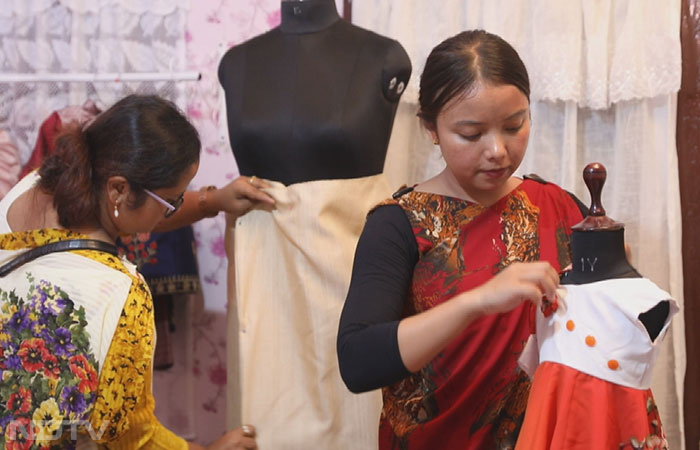 Leda's tailoring unit is the only one in the village and she is well known as an entrepreneur who gets plenty of orders. Today, she has nine students under her and four employees.
Leda's tailoring unit is the only one in the village and she is well known as an entrepreneur who gets plenty of orders. Today, she has nine students under her and four employees.
Leda Leda's story is not only inspirational but filled with promise, not only for herself but also the several other women who learn and even earn at this Silai school. -
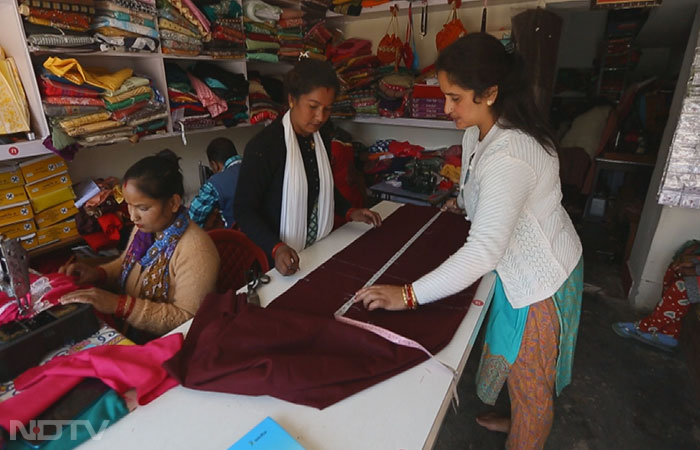 After spending 20 years in a small village in Badalu and going through a major financial and familial upheaval, Tulsi participated in the nine-day Silai Training Program on November 2, 2020. She started with the bare minimum, saving one hard earned rupee after the other, by stitching her own clothes. Today, she runs a Silai school of her own and earns more than Rs 60,000 - Rs. 70,000 every month.
After spending 20 years in a small village in Badalu and going through a major financial and familial upheaval, Tulsi participated in the nine-day Silai Training Program on November 2, 2020. She started with the bare minimum, saving one hard earned rupee after the other, by stitching her own clothes. Today, she runs a Silai school of her own and earns more than Rs 60,000 - Rs. 70,000 every month. -
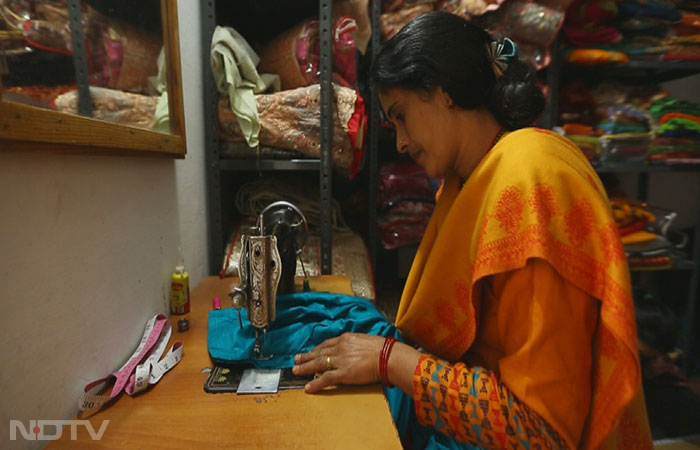 Tulsi Shah exemplifies the chain impact of the USHA Silai School Training Program that spreads in the country through the Silai School Women Entrepreneurs. She has trained over 70 women in stitching, sewing, hemming, and other tricks of the trade. Having employed several women, she now hopes to expand her enterprise and liberate herself as well as her community.
Tulsi Shah exemplifies the chain impact of the USHA Silai School Training Program that spreads in the country through the Silai School Women Entrepreneurs. She has trained over 70 women in stitching, sewing, hemming, and other tricks of the trade. Having employed several women, she now hopes to expand her enterprise and liberate herself as well as her community.
Advertisement
Advertisement
Advertisement
Advertisement
